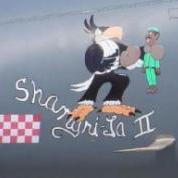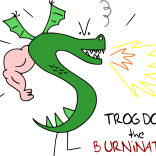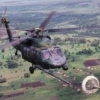I get what you're saying, and I get what joe1234 is saying. I managed to do almost 22 years and never had a position that wasn't flying, instructing, or evaluating and my thoughts have been all over the map on this issue.
There's always been the constants in the Squadron: A few stick and rudder guys that just nailed everything, few GK gurus, a couple deadbeats, and then... everyone in the middle. For whatever reason, I marked 2012 as the year when I saw a notable decline in the middle of the squadron's "give a shit" attitude and emphasis toward flying skills. That's also around the time I noticed a massive increase in complexity of simply being a pilot/member of the Air Force. It was around this time when the Great PC Witch Hunt occurred, more inspections, budget sequestrations/less flying, new finance policies, etc.
After a while, every checkride/training folder began with conversations along the lines of "Hey, I'm just trying to get through this. I've been working on MICT checklists for the past month and have been cancelled for MX/WX/Ops six times." And they weren't lying. So then I go to the SQ/CC with my concerns and he says, "Yeah, I know what you mean. I just got back from a conference and had to jump on a line and seat swap with 2 other pilots last night to get my one to/app/landing for the month. Maybe we should schedule a GK/tactics briefing this week to up everyone's game." Surprise, no one dropped their deployment prep, CBTs, OPRs/EPRs, Wing staff circlejerks, training summary reports, FEF reviews, travel voucher puzzles so Petey Patchwearer could lecture everyone how to calculate a tactical descent profile into Baghdad international.
So I would debrief the flight, I'd try to offer techniques, get in the weeds a little, and they'd rapidly nod while checking their watch. They all had to make slides for the next morning's staff meeting, send an email, meet some sort of deadline for more important matters.
My point is it's a math problem. I don't think the quality/character of the average pilot of the squadron has declined. But if you increase the complexity of the job and therefore reduce the time available to dedicate to improving flying skills, the result is the result. On top of that, the Air Force doesn't require or reward you for being better than you were yesterday in your primary duty. I 100% agree that everyone should strive to be better than the minimum. Challenging oneself and being the best pilot you can be for your country and coworkers should be reward in itself, but it still competes with, and is secondary to, the other time and tasks the Air Force requires.










